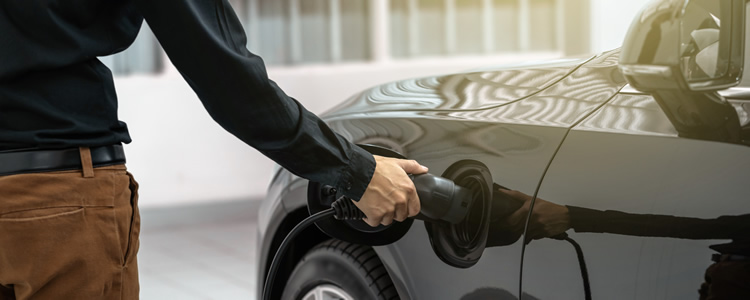Government Doubles Funding for EV Chargers on Residential Streets

The government is committing £2.5 million to install 1,000 additional electric vehicle chargers on residential streets, transport secretary Grant Shapps has announced.
That’s double the current funding of the residential charge point scheme which was launched in 2017. Under previous funding, 16 local authorities are scheduled to install 1,200 public charging stations this year. The government’s new pledge will nearly double that number, with charging ports to be installed in existing structures such as lamp posts.
The increased funding comes as critics have warned that the uptake of EVs has been hampered by a lack of charging stations, especially in residential areas.
Although 80% of electric vehicle charging is done at home, according to figures from the Department for Transport, public charging stations are vital for those who don’t have access to off-street parking. And although the UK now has more than 20,000 public charging stations, distribution is poor and they’re often concentrated in city centres, far away from drivers' homes.
Sales of electric vehicles have surged recently, reaching their highest level ever in July, but market share for “pure” electric vehicles lags at just 1.4%. That’s a far cry from the half of all vehicle sales the government wants to be low emission by 2030, as a step toward the ultimate goal of banning the sale of petrol and diesel vehicles by 2040.
Last year, motoring association AA revealed that 80% of drivers said lack of access to charging stations was the main reason they hadn’t considered switching to an electric vehicle. The RAC echoed those findings, this year warning that a “patchy” EV charging network is “putting off drivers”. The government hopes an increase in the number of charging stations on residential streets will boost uptake.
“It’s fantastic that there are now more than 20,000 publicly accessible charge points and double the number of electric vehicle charge points than petrol stations, but we want to do much more,” said Mr Shapps.
“It’s vital that electric vehicle drivers feel confident about the availability of charge points near their homes, and that charging an electric car is seen as easy as plugging in a smartphone. That’s why we are now doubling the funding available for local authorities to continue building the infrastructure we need to super-charge the zero emission revolution right across the country.”
Transport is currently responsible for around a quarter of the UK’s carbon emissions, and decarbonising the nation’s fleet of 38.4 million vehicles is seen as essential to meeting the nation’s recently redoubled net-zero goal by 2050.
Head of roads policy at AA Jack Cousens said in response to the policy: “The success of the UK’s electric vehicle revolution hinges on access to charging infrastructure and many neighbourhoods so far feel disconnected. This announcement is therefore very welcome news but there is still a long way to go.”
Read on our blog

With the government poised to implement tough new measures to...

Budget broadband provider TalkTalk has been notifying customers via email...

A year-long investigation by charity Citizens Advice has revealed a...

Education Secretary Nadhim Zahawi has announced a new commitment to...
